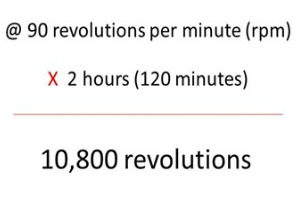In the simplest terms possible, a proper bike fit ensures efficiency and safety
Photo by Pavel Danilyuk/Pexels
Without a doubt, cycling is the most high-tech and equipment-intensive of the three triathlon disciplines. Most of us who have finally invested in a “serious” bike are normally overwhelmed by our new toys.
What a lot of people overlook though is that beyond getting good quality equipment, a bike has to fit the rider. Cycling is a partnership between man and machine, rider and bike. To get the best performance, there must be synergy between both.
In this case, a good rider plus good equipment does not automatically equal good performance. The critical factor is how the equipment and the rider interact and how they fit together.
But beyond performance, there are other advantages, too. On a practical level, a properly fit bike gives you the comfort and control you need to ride safely and the ability to react to anything on the road—rough terrain, careless drivers, or even other cyclists.
There is also the benefit of injury prevention. Each wrong pedal stroke contributes to injury. To give context, here’s a simple equation:

If you were to ride at the average cadence of 90 revolutions per minute for two hours, that translates to over 10,000 pedal strokes. Those could be 10,000 improper pedal strokes, each contributing to poor form, wrongly trained muscles, and potential injury.
Cycling, by nature, involves repetitive motion. And depending how well you fit on your bike, these motions could be efficient, inefficient, beneficial to your training and goals, or injurious. Thankfully, bike fitting is now widely available in the Philippines. If you haven’t been fitted, you have the option to seek experts or go through a store-based bike fitting system.
The advantages of going with a coach are that they can monitor you, ride with you, and adjust your fit over a period of time. Keep in mind that bike fit changes as the strength and flexibility of our bodies evolve. Store-based bike fitting systems, on the other hand, use technology to prescribe your optimal position. These are invaluable in getting precise measurements and for identifying and addressing cases such as leg length discrepancy.
If you’ve spent on “serious” cycling equipment, get yourself properly fitted. While safety and injury prevention are serious matters, the synergy between you and your bike will give you better performance in the years to come.
1 comment
Great tips especially for those who wanted to start engaging in triathlon events and getting their first bike :))